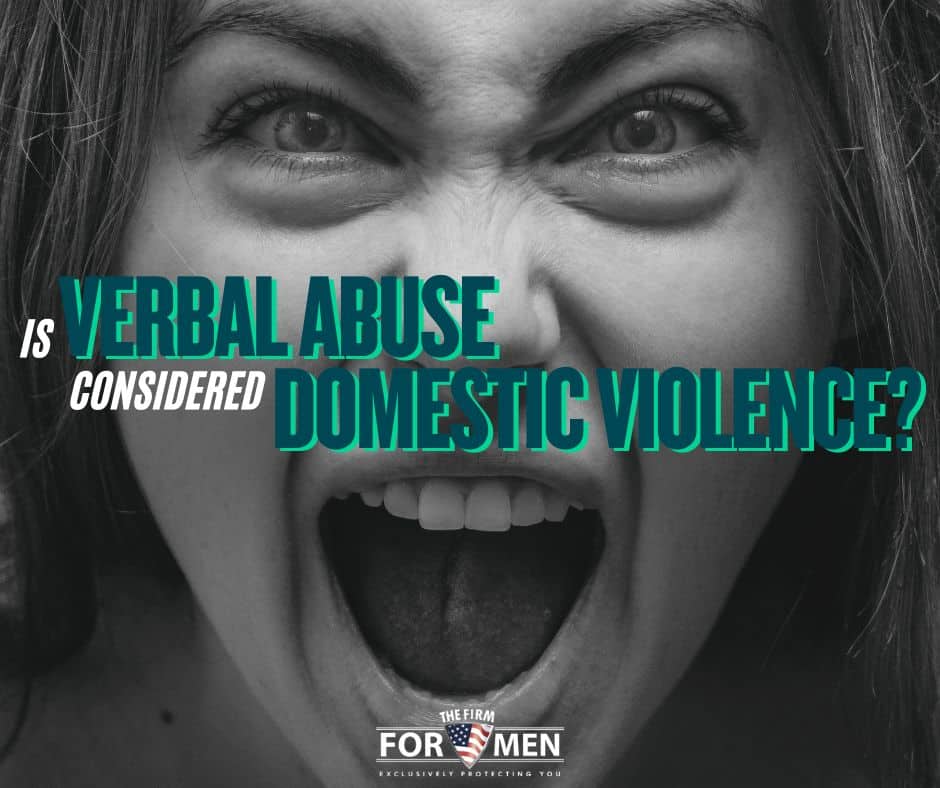Verbal abuse may not leave bruises, but its impact can be just as devastating. In Virginia, hurtful words, threats, and constant humiliation can rise to the level of family abuse — a legal term that includes both emotional and verbal harm. Many men and women facing this kind of mistreatment wonder if it qualifies as domestic violence under Virginia law. The answer depends on the language, intent, and fear caused by the abuser’s actions.
This article breaks down exactly how Virginia family law views verbal abuse, what the law defines as family abuse, and what legal options are available if you’ve been targeted.
Table of Contents
- What Is Verbal Abuse?
- Emotional and Verbal Abuse in Virginia Law
- Understanding “Family Abuse” Under Virginia Code
- Verbal Abuse Outside the Home
- Verbal Abuse in the Workplace
- Verbal Abuse Within the Home
- Can Men Be Victims of Verbal Abuse?
- Legal Consequences of Family Abuse
- Reporting Verbal Abuse and Seeking Help
- Protecting Yourself with Legal Counsel
1. What Is Verbal Abuse?
Grawlixes — those comic-style symbols like “@&#~?$” — may be funny in comics, but real-life cursing and threats are no joke. When insults, humiliation, or intimidation become habitual, they turn into verbal abuse.
The National Domestic Violence Hotline defines verbal abuse as a form of emotional abuse, involving behaviors designed to control or frighten someone.
Examples include:
- Name-calling or constant criticism
- Threatening loved ones or pets
- Humiliating a partner in public or private
- Intimidating looks or actions
- Accusations and manipulation
Verbal abuse is a form of emotional abuse — and emotional abuse is domestic violence under Virginia law.
2. Emotional and Verbal Abuse in Virginia Law
Virginia recognizes that abuse doesn’t have to be physical to cause harm. Words, when used to threaten or terrorize, can be prosecuted under the Commonwealth’s family abuse laws.
Virginia Code considers verbal threats or intimidation that make someone fear for their safety as a criminal offense. Simply put, verbal abuse can legally qualify as domestic violence.
3. Understanding “Family Abuse” Under Virginia Code
Virginia doesn’t use the phrase “domestic violence.” Instead, it uses “family abuse”, defined under Virginia Code §16.1-228 as:
“Any act involving violence, force, or threat that results in bodily injury or places one in reasonable apprehension of death, sexual assault, or bodily injury … committed by a person against a family or household member.”
That key phrase — “or threat that places one in reasonable apprehension” — includes verbal threats that cause fear of harm. Verbal abuse is, therefore, part of the law’s definition of family abuse and is punishable under criminal statutes.
4. Verbal Abuse Outside the Home
Under Virginia Code §18.2-416, cursing or using violent, abusive language in public that could provoke a breach of peace is a Class 3 misdemeanor, punishable by a fine of up to $500.
If Virginia law criminalizes verbal abuse in public, it stands to reason it’s not tolerated inside the home either — where victims deserve even stronger protection.
5. Verbal Abuse in the Workplace
Workplace laws also prohibit abusive speech. Under §22.1-291.4, “abusive conduct” includes repeated verbal abuse such as threats, insults, or humiliation.
If such language is illegal at work or school, it’s certainly illegal at home when directed at a family or household member.
6. Verbal Abuse Within the Home
Virginia’s definition of family or household member is broad. It includes:
- Current and former spouses
- Parents, children, and siblings
- In-laws living in the home
- Partners who share a child in common
- Individuals who cohabit (or recently cohabited)
That means verbal abuse directed at any of these people can qualify as family abuse. The same law that protects a child or spouse also protects a former partner or roommate.
7. Can Men Be Victims of Verbal Abuse?
Absolutely. While society often frames domestic violence as male-against-female, Virginia’s laws are gender-neutral. Men, too, can experience emotional and verbal abuse — and are protected equally under §18.2-57.2, which criminalizes assault or threats against a family member.
Conviction can bring up to 12 months in jail and $2,500 in fines, and repeat offenses can escalate to Class 6 felony charges with potential prison time.
8. Legal Consequences of Family Abuse
Penalties for family abuse vary depending on severity and repetition. Under Virginia Code §18.2-57.2 and §18.2-11:
- First offenses can mean up to a year in jail and fines up to $2,500.
- Repeat offenses within 20 years can lead to felony charges and 1–5 years in prison.
Verbal abuse cases often also result in protective orders, mandatory counseling, and potential loss of firearm rights.
9. Reporting Verbal Abuse and Seeking Help
If you’re being verbally threatened, intimidated, or demeaned, it’s worth reporting.
In 2023, Virginia’s Statewide Domestic and Sexual Violence Hotline received over 72,000 calls from across the Commonwealth, and nearly 29,000 people received direct advocacy or shelter.
You don’t need to wait for physical harm to occur before seeking help. A Virginia family law attorney can help you file protective orders or criminal complaints as needed.
10. Protecting Yourself with Legal Counsel
At The Firm For Men, we’ve represented men exclusively in Virginia family law for nearly two decades. Our attorneys understand the complexities of domestic violence cases, including false allegations and genuine emotional abuse claims.
Whether you’re a victim of verbal abuse or wrongfully accused, our team can protect your rights, reputation, and future.
Call (757) 383-9184 or contact us online today to schedule a confidential consultation.
The Firm For Men — Defending Men’s Rights, Protecting Their Futures.

